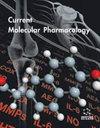基于 RNA 干扰的降低心血管风险疗法
IF 2.9
4区 生物学
Q3 BIOCHEMISTRY & MOLECULAR BIOLOGY
引用次数: 0
摘要
::在全球范围内,慢性阻塞性肺疾病的发病率仍在持续增长,从 1990 年的 2.71 亿增至 2019 年的 5.23 亿。在几种可改变和不可改变的心脏病风险因素中,血脂异常是由遗传和生活方式因素介导的一个重要而普遍的风险因素。因此,降低血脂水平,特别是低密度脂蛋白胆固醇(ldl-c)水平,是降低心血管疾病风险的关键策略。研究发现,每 1000 人中,低密度脂蛋白胆固醇水平降低 20 毫克/分升,就能预防 2-3 例冠心病(cad)。研究还发现,降低低密度脂蛋白胆固醇水平与降低死亡率有关。不过,降低低密度脂蛋白胆固醇水平并不能消除重大心血管事件的风险。本文章由计算机程序翻译,如有差异,请以英文原文为准。
RNA Interference-based Therapies for the Reduction of Cardiovascular Risk
:: Globally, there remains an unwavering increase in the incidence of cvd - from 271 million in 1990 to 523 million in 2019. Among the several modifiable and non-modifiable risk factors of heart disease, dyslipidemia is an important and prevalent risk factor mediated by both genetics and lifestyle factors. Hence, lowering lipid levels, specifically, ldl-c levels (low-density lipoprotein cholesterol), is a key strategy in decreasing the risk of cardiovascular disease. A reduction of 20 mg/dl in ldl-c levels has been found to prevent 2-3 cases of coronary artery disease (cad) for every 1000 individuals. Studies have also found reductions in ldl-c levels to be associated with a mortality benefit. However, ldl-c levels reduction may not eliminate the risk of significant cardiovascular events.
求助全文
通过发布文献求助,成功后即可免费获取论文全文。
去求助
来源期刊

Current molecular pharmacology
Pharmacology, Toxicology and Pharmaceutics-Drug Discovery
CiteScore
4.90
自引率
3.70%
发文量
112
期刊介绍:
Current Molecular Pharmacology aims to publish the latest developments in cellular and molecular pharmacology with a major emphasis on the mechanism of action of novel drugs under development, innovative pharmacological technologies, cell signaling, transduction pathway analysis, genomics, proteomics, and metabonomics applications to drug action. An additional focus will be the way in which normal biological function is illuminated by knowledge of the action of drugs at the cellular and molecular level. The journal publishes full-length/mini reviews, original research articles and thematic issues on molecular pharmacology.
Current Molecular Pharmacology is an essential journal for every scientist who is involved in drug design and discovery, target identification, target validation, preclinical and clinical development of drugs therapeutically useful in human disease.
 求助内容:
求助内容: 应助结果提醒方式:
应助结果提醒方式:


